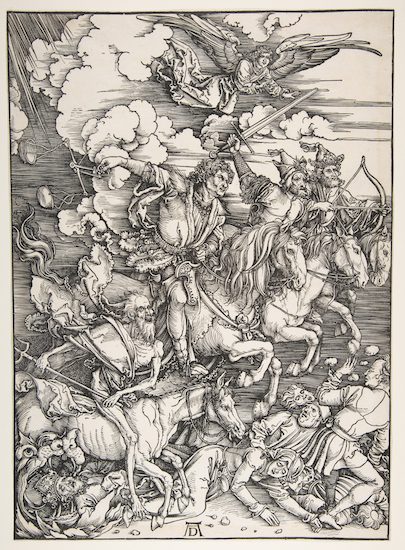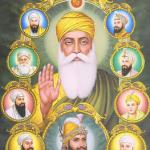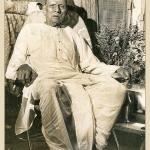Some Zen Words for End Times
Today, the 21st day of the first month of the third season, in the 23rd year of Thutmose III’s reign, or as we may prefer to put it, the 16th of April, in the year 1457 before our common era (okay unless it was 1482 or 1479 BCE), marks the anniversary of the oldest battle recorded with anything resembling reliable detail.
It was a fight between Egyptians led by the Pharaoh Thutmose III and Canaanites led by the king of Kadesh. True to form what we know comes from the victors. In this case recorded by Tjaneni, a military scribe, and painted on the walls at the Hall of Annals in the Temple of Amun-Re in Luxor, Thebes. (Karnak in the day)
In the immediate it led to a strategic retreat into the city of Megiddo. Which would eventually result in the victory of the Egyptians. The battle is the Battle of Megiddo.
If the word is familiar, its because it also lends itself to the mystic ravings of the Apocalypse of John. Megiddo as a place name appears a dozen times in the Hebrew Scriptures. It has a single reference in the Apocalypse, at chapter 16, verse 16:
And the demonic spirits assembled the kings at the place that in Hebrew is called Armageddon.
From there the great battle, and the end of the worlds. One has to appreciate the bookending of history with a battle and a battle. Well. Sort of. The worm swallowing it’s tail, the whole thing a living, breathing, cycle of pain.
Now everybody seems to have end times, all cultures dream their beginnings, and have visions of their ends. But what those ends mean are different things to different people in different ages and places. So, in the Abrahamic traditions history tends to be a one way street with a beginning point and an end. The end being the end of it all. In Christianity and Islam with a high tribunal, and rewards and punishments meted out. In Buddhist tellings of the way things are, everything dies, everything passes away. But, in great cycles of birth and maturity and dying. Followed by another cycle. A distinction.
The end part of that cycle is called mofa in Chinese and mappo in Japanese. And in East Asian Buddhism while various periods have been considered the dawning of the mappo era, in popular Japanese Buddhism, through a calculation of when they thought Gautama Siddhartha lived, and giving each of the three eras, the beginning, the middle, and that end a thousand years each, set the year 1052 as the dawn of mappo. Which for the calendar minded puts us at the end of the end times.
Now, I suspect many traditions believe they’re somewhere near the end. Christianity, anyway, has been in the last phase since before it birthed, as John the Baptist preached on the shores of the Jordan River. It doesn’t take hard looking at the state of the world to indulge fantasies of the end. One end or another. Could be the planet. Or, maybe just for tons and tons of people.
I suspect there are ways in which our stories about our cultures are also about our individual lives. As I write this I am within spitting distance of my seventy-fifth birthday. Okay, its still a couple of months out, but, it looms ever larger. And with that three quarters of a century of human life, I’m mindful of my own looming end. I’m without any doubt in the middle of my own end times. Sooner or a tad later, well, that’s up the gods. Capricious shits that they are…
Everything dies. Everything is dying. We are born dying. Just the way things are.
And. So. How do we meet this thing.
Jan Seymour-Ford and I are big fans of the Expanse, first the television series, and then the books. An epic tale of another ending with hints of other beginnings. Jan has gone on to join a couple of Expanse social media groups. On one people were asked what two things did they get out of the series?
Jan’s response was framed by the arc of the story. But, it was also pure Zen.
Jan said
“Respect your tools. And everything you know is a working hypothesis…”
First those tools. There are several in the box. Having a sense of the disciplines of silence and presence are critical. Using them is very, very important. Also, Zen offers an astrolabe. Understanding how it works is just as important. And it offers a place to stand. When the very ground under us is shaking and falling away, standing there is a very good idea.
And. The universal solvent, the way to use those three great tools of the way, is understanding everything, including how we engage these tools, is tentative, a working hypothesis. The sages of our way constantly remind us how not knowing is most intimate.
These are perilous times. They might be end times. In one sense or another, of course they’re always end times.
Everything is falling apart. Including us, you and me.
And there is a way to meet this harsh truth. Your tools, and that working hypothesis.
A pointer.
Zen words for end times.














